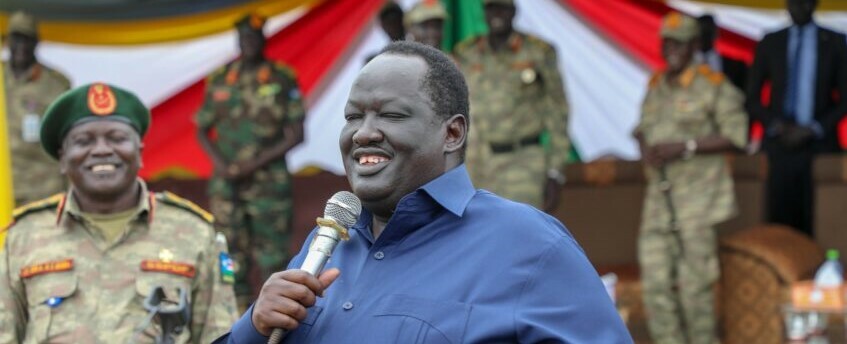South Sudan’s President Salva Kiir has tasked his advisor on national security affairs, Tut Gatluak, to engage the warring parties in Sudan after the country’s oil pipeline to international markets, which passes through neighbouring Sudan, was damaged in February.
Income from oil exports is critical to South Sudan’s government. The war in neighbouring Sudan has led oil revenues to fall precipitously, raising fears that South Sudan’s economy could collapse.
The incident occurred in early February in Sudan’s White Nile state, prompting the Dar Petroleum Oil Company to suspend loadings.
The rupture happened in Sudan’s Nile State, an area controlled by Sudan’s paramilitary Rapid Support Forces, which is fighting the Sudanese army for power in the country.
A team of technical experts has been unable to fix the pipeline due to ongoing fighting.
Speaking to reporters in Juba on Tuesday after a meeting between the Chinese Ambassador to South Sudan, oil companies and National Security Advisor Tut Galuak, William Anyak Deng, Undersecretary in the Ministry of Petroleum, said the export of South Sudan oil to the international markets through Port Sudan stopped on 6 February when the pipeline ruptured. He pointed out that the engineers have been unable to fix the pipeline due to the fighting.
Anyak revealed that President Salva Kiir had directed the Presidential Advisor on National Security, Tut Gatluak Manime, to engage the Sudanese warring parties to allow oil engineers to fix the raptured oil pipeline.
“The level of escalation has increased, and it has impacted our progress on those issues [fixing the raptured pipeline]. That is why the President directed the advisor to engage all the warring parties to allow our engineers to be on the ground to resolve those issues,” Anyak said.
Anyak pointed out that the engineers are facing challenges of lack of communication, accessibility, and delivery of materials to the site, especially the pump stations and some essential facilities in Sudan, although they have already fixed the ruptured pipeline and are now struggling to remove the wax in the pipeline.
“To remove the wax in the pipeline, you have to push it at least out or drain it out by pumping hot water or pumping diesel to restore this process, and the pipeline is 1,400 kilometres starting from Jebelain up to the Marine Terminal. Along this pipeline, we have more than six pump stations between one station to another, which is almost 200 kilometres,” Anyak said.
Ma Qiang, Chinese Ambassador to South Sudan, said they are aware of South Sudan’s challenges in the oil sector and assured of China’s support in resolving the challenges.
“I assure you that China will continue to provide our support and cooperation with the partners to try to solve the problem and tackle the challenges. In the future, we will continue to strengthen our bilateral cooperation in the oil sector and other sectors to strengthen our bilateral relations and benefit people from the cordial relations together for our people in Africa,” Qiang said.




